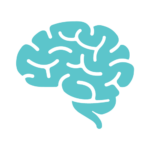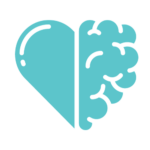Understanding Opioid Addiction
This page discusses all you need to know about Opioid Addiction and how we, at Akua, can help you. Click on a link for faster navigation:

AKUA and Opioid Addiction
Recovery from opiate addiction starts with Opiate detox. It is best if one goes through the treatment for Opiate addiction under proper medical care and guidance so that they can ease the painful withdrawal symptoms and help the individual achieve sobriety.
At AKUA Mind & Body, we provide holistic treatment programs combining the time-tested traditions of the East with the scientific approach of the West to help our clients safely beat their addiction.
Our recovery plans are highly individualistic in nature so that all the unique requirements of our clients are addressed, and they can overcome their addictions with relative ease. Our dedicated staff is always there to help the clients whenever they hit a rough patch. At AKUA, we believe in perfection and strive to give the best possible care to those who seek help.
Understanding Opioid Addiction
Opiate addiction has become an epidemic in the US over the past few years. Opiates are prescribed by doctors as painkillers and they also induce a feeling of euphoria which makes it a drug of choice for substance use disorders.

Opioids are a class of drugs that includes prescription painkillers, including OxyContin, Vicodin, morphine, codeine, and fentanyl.
These drugs function as depressants of the central nervous system, which lessens a person’s perception of pain and promotes feelings of well-being.
These characteristics make opioid prescription drugs often prescribed to treat moderate to severe acute or chronic pain. Although many people utilize these medications for specific medical purposes, they also have extremely addictive qualities that can easily draw users into long-term drug misuse patterns.
Furthermore, some people may start using opioids without a valid medical reason because of the pleasurable side effects that come with it. When taken in doses more than the one prescribed, Opiates have dire effects on one’s body. Because these drugs are very addictive, they may also cause these people to develop harmful drug use habits and may have a devastating effect on a person’s life.
Opiate addiction has become an epidemic in the US over the past few years. Opiates are prescribed by doctors as painkillers and they also induce a feeling of euphoria which makes it a drug of choice for use.
When taken in doses more than the one prescribed, Opiates have dire effects on one’s body. There are three types of opiates:
Three types of opiates
- Natural – Morphine and Codeine
- Semi-synthetic (Opioids) – Heroin, Hydrocodone, Hydromorphine, Oxycodone etc.
- Synthetic – Fentanyl, Methadone, Propoxyphene and Pentazocine
To learn more about specific types of Opiates, you can refer to the links below:
We accept most private insurance, and
handle all paperwork
Causes and risk factors for opioid addiction
Even though opiate addiction is a universal problem, there are factors to consider while trying to identify what leads to it. The following should be considered:

Genetic:
An individual’s vulnerability to developing an opioid use disorder is greatly increased by genetic variables. People who inherit a background with a family history of opioid abuse are more likely to experience the same kind of addiction.
Moreover, a person’s inclination to misuse substances may be inherited due to abnormal personality features and temperamental circumstances.

Psychological:
Addiction to opioids is more likely to occur in people who have an untreated or preexisting mental condition.
Those who are suffering from the negative effects of having a mental illness may find solace in the euphoria, lack of discomfort, and sense of disconnection from the outside world that comes with being high on opiates.
Furthermore, studies indicate that those with poor self-esteem are more likely to abuse opioids since the enhanced mood that opioids provide may give the impression that the user performs better in social circumstances.

Environmental:
A person’s propensity to misuse opiates may be increased by their exposure to opiate drugs. A person may also turn to opioids as a coping mechanism for stress due to a variety of environmental circumstances, including trauma, poor socioeconomic status, difficult interpersonal interactions, and financial instability.
Risk Factors
- Personal or family history of misusing opioid or other types of substances and addiction
- Being surrounded by individuals who abuse opioids or other substances
- Personal history of trauma
- Being in the company of individuals who misuse opioids or other types of substances
- Possessing an impulsive temperament
- Suffering from a medical condition that warrants receiving a prescription for opioid pain killers
- Having a novelty-seeking personality
- Having easy access to opioid substances
- Low socioeconomic status
- Preexisting or undiagnosed mental health disorder
Signs and symptoms of opioid addiction
Individual differences exist in the indications and manifestations of opioid use disorder. Some or all of the following signs and symptoms may be present in someone with an opiate addiction may exhibit:

Behavioral symptoms
- Withdrawing from family and friends
- No longer engaging in activities that were once seen as enjoyable
- Socially withdrawn or isolated
- Slurred or incoherent speech
- Lying
- Stealing
- Lack of coordination
- Compulsive, prolonged use of opioids
- Engaging in drug-related crimes
- Using opioids in situations that are hazardous, such as driving while impaired
- No longer fulfilling obligations at home
- Experiencing a declined performance in work or school
- Continuing to abuse opioids despite having the desire to stop
- Visiting multiple doctors to receive multiple painkiller prescriptions

Physical symptoms
- Drowsiness
- Psychomotor agitation and retardation
- Insomnia
- Pupillary construction
- Constipation
- Weight Loss
- Headaches
- Diarrhea
- Dry mouth

Cognitive symptoms
- Concentration and attention difficulties
- Suicidal ideation
- Cravings for continued opioid use
- Memory impairment
- Impaired judgment
- Poor impulse control
- Lack of good decision-making
- Disorientation
- Inability to communicate

Psychosocial symptoms
- Euphoria followed by apathy
- Depression
- Anxiety
- Mood swings
- Inability to concentrate
- Disconnected from reality

Symptoms of Opiate Intoxication
When used for a long duration, Opiates may easily lead to addiction even if it is used as prescribed. Individuals who have been using opiates for a long time develop tolerance, meaning the same amount of drug will not have the same effect as it did in the beginning. This triggers the cycle of addiction and people start looking for ways to get the drug in larger quantities than prescribed to satisfy their need.
Some of the many symptoms manifested during opiate addiction are as follows:

Physical Symptoms
- Noticeable elation/euphoria
- Marked sedation/drowsiness
- Confusion
- Drastic mood changes
- Constricted pupils
- Slowed breathing
- Intermittent nodding off, or loss of consciousness
- Constipation

Other Symptoms
- Doctor shopping (getting multiple prescriptions from different doctors)
- Shifting or dramatically changing moods
- Extra pill bottles turning up in the trash
- Social withdrawal
- Isolation
- Sudden financial problems
Achieve Lasting Recovery!
Effects of opioid addiction
If an opiate addiction worsens, a person may experience a variety of negative consequences. As well as the immediate and extended health consequences, an addiction to opioids can impact various aspects of an individual’s life. Long-term opiate addiction can result in a variety of detrimental outcomes, including, but not limited to the following:
- Dry mouth and nose
- Legal problems due to engaging in criminal behavior, including incarceration
- Occupational failure
- Financial instability
- Homelessness
- Relationship disturbances / marital strife/ family discord or loss of friendships
- Loss of child custody
- Cognitive impairment
- Disturbances of reproductive functioning in women
- Erectile dysfunction in men
- Seizures
- Stroke
- Heart attack / Infections of the heart
- Slowing of gastrointestinal activity / constipation
- Increased heart rate
- Suffering from anoxia or a deficiency in the amount if oxygen reaching the body’s tissues
- Raise in blood pressure
- Arthritis
- Multiple organ damage or failure
- Track marks, collapsed veins or sclerosed veins in individuals who inject the drug
- Increased risk for contracting infections like HIV / AIDS or hepatitis C
- Onset of new, or worsening of current, mental illness symptoms
- Impaired visual activity
- Academic or occupational failure
- Homelessness
- Death
Opioid Addiction and Dual Diagnosis
It is common for those with opiate substance disorder to also have another mental illness. Although not all individuals with addictions experience all of these conditions, an opiate addiction makes the user vulnerable to the following:
- Posttraumatic stress disorder (PTSD)
- Major depressive disorder
- Stimulant use disorder
- Alcohol use disorder
- Other substance use disorders
- Major depressive disorder
- Schizophrenia
- Anxiety disorders
- Personality disorders
- Eating disorders
The successful recovery from opioid addiction may be jeopardized if appropriate treatment for dual illness is not also received.
Sadly, some with opioid substance disorder are unaware that they are also struggling with other health issues. This is the reason it is critical to seek assistance from a facility capable of recognizing and meeting the entirety of the addict’s situation.
A thorough dual diagnosis program can help you start along the road to a drug-free future.

AKUA Mind & Body Dual Diagnosis Treatment Program
Treatment for co-occurring disorders aims at treating both the mental health disorder, and the substance use disorder with an integrative approach, including:
- Medical detoxification
- Psychotherapy
- Family therapy
- Social support groups
- Medications to treat mental health disorders
- Aftercare treatment
Effects of Opioid Withdrawal and Overdose
Effects of opioid withdrawal
Withdrawal from opioids can be extremely painful and unpleasant. It can even be fatal. Withdrawal usually starts within a few hours after the last dosage and may continue for several days. Any combination of the following symptoms could be experienced by someone going through withdrawal:
- Muscle cramps and aching
- Bone pain
- Agitation
- Pupil dilation
- Insomnia
- Fever
- Nausea and Vomiting
- Excessive sweating
- Dysphoric mood (feeling in a constant state of unease)
- Diarrhea
- Uncontrollable flowing of tears
- Sweating
Effects of opioid overdose
An opioid user runs the danger of suffering an overdose if they take opioids to the point where their body is unable to metabolize them. When opioids are used repeatedly, individuals acquire tolerance, which means their bodies require higher doses of the drug to produce the same effects. People are more likely to overdose when they continuously take more opioids to get the desired high. The following are just a few examples of warning indicators signaling a possible overdose of opioids:
- Shallowed or labored breathing
- Severe dizziness
- Significantly slurred speech
- Extreme confusion
- Cold, clammy skin
- Headache
- Sudden sleepiness
- Seizures
- Loss of consciousness
- Change in skin tone
- Choking or gurgling sounds
- Limp limbs
- Inability to speak
- Vomiting

Opiate Withdrawal Symptoms
When one goes through opiate withdrawal, the symptoms may be similar to a flu. The withdrawal symptoms also include psychological effects along with physical ones. Opiate withdrawal is one of the most painful ones out of any type of drug withdrawal.
Since opiates are high-power painkillers, once the usage is stopped, the pain returns creating severe pain.
Some of the primary symptoms of Opiate withdrawal are:
- Major depressive disorder (clinical depression)
- Premenstrual dysphoric disorder
- Postpartum depression
- Persistent depressive disorder
- Psychotic depression
- Seasonal affective disorder
Why you should consider AKUA
for Opioid Addiction Treatment
FAQ: Common Questions About Opioid Addiction
Akua Behavioral Health offers addiction treatment programs in a residential, community-based setting. Our clients stay in our home-like program, with 24-hour supervision to ensure their safety and comfort. Inpatient drug rehab gives clients the best chance at lasting recovery through highly-structured care for those struggling with drug, alcohol and/or their mental health.
Many clients stop experiencing withdrawal symptoms 3 to 7 days after starting our detox program. While the experience may vary due to various factors, Akua Behavioral Health is committed to providing our clients with safe and comfortable detox.
Akua Behavioral Health works with most major insurance plans to ensure quality addiction treatment is accessible for our clients.
AKUA works closely with most HMO, EPO, and PPO insurance plans including AmeriHealth, Humana, United Healthcare, Allcare Health, Highmark, UPMC Health Plan, and is In-Network with Anthem Blue Cross, Aetna, Cigna, HealthNet, Blue Cross/Blue Shield, Magellan, Molina, HMC Health Works, Tricare, Beacon Health Options, IKWO, Western Health Advantage, Prime, Multi Plan, EHN, ComPsych, First Health Network, USAMCO, Triwest, and more.
